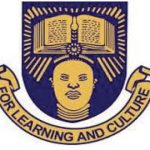Fadamiro gave the advice last week at a workshop, themed: ‘Educating the Next Generation of Global Problem Solver: Effective Teaching Strategies and Techniques,’ organised by the Adekunle Ajasin University, Akungba-Akoko, Ondo State, in conjunction with Auburn University.
He said; “If we do everything right, we should be producing the next generation of global problem solvers. The curriculum being used in Nigeria presently must be redesigned to give essential skills to the students, so that they can be problem solvers. The curriculum must accommodate present global economy, which is digital.”
He noted that curriculum development or revision should be done periodically (three to five years), while curriculum committees should make minor changes yearly to accommodate new developments and research findings.
He advised Nigeria to emulate China by reforming its curriculum from subject-centred to balanced, integrated and selective curriculum, to factor in the need of the changing world.
He also recommended the adoption of problem-solving learning styles and the discontinuation of passive learning and rote-learning style.
According to Professor Fadamiro, “if 50 per cent of a class fails a course, it means that the teacher has failed in 50 per cent. Lecturers must find a way to make their classes inviting and move away from defining concepts alone and focus more on application of such concepts.”
He also advised the lecturers to consider the trending teaching method, ‘flipped classroom’, a model in which the typical lecture and homework elements of a course are reversed; short videos about the topic are viewed by students prior to class session; in-class session is devoted to discussions, exercises or projects; and shift priority from merely covering material to mastery of it.
Earlier in his Opening Remark, the vice chancellor, Professor Igbekele Ajibefun, had thanked the guest lecturer for his efforts at making active the relationship between AAUA and Auburn University.
Professor Ajibefun said AAUA would continue to explore the various opportunities and components of the Memorandum of Understanding MoU, between the two institutions.
Meanwhile, the AAU has been chosen as one of 10 tertiary institutions in Nigeria to benefit from donation of science equipment and upgrading of laboratories initiated by a private firm, Tunex Laboratory Engineering Limited.
The managing director of the firm, Mr Tunji Olaleye, who disclosed this during a courtesy visit to the university last Thursday, said the gesture was to mark the 30th anniversary of operations of the firm and to serve as a way of giving back to the society in fulfillment of its Corporate Social Responsibility.
The vice chancellor, who was represented by his deputy, Professor Olugbenga Ige, lauded the gesture as a welcome development, especially coming from a private firm that has no prior dealings with the university.
In his vote of thanks, the registrar, Mr M. S. Ayeerun, thanked the organisation for the gesture and called for more cooperation and collaboration in addressing other challenges facing the institution.






